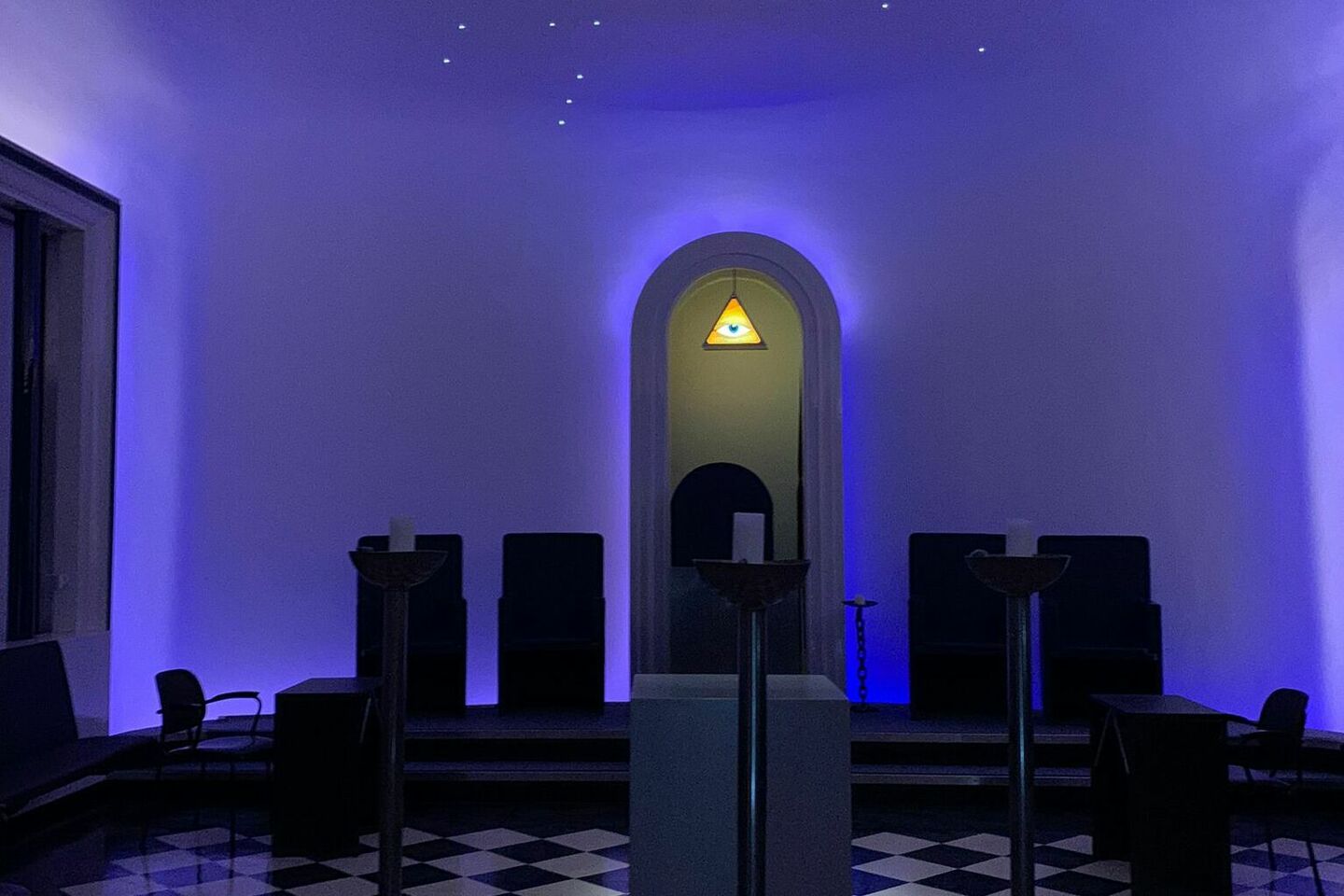
TU/e freemasons: “Know thyself, and thou shalt know the gods”
What makes Eindhoven so attractive to this fraternal organization?
There are more freemasons within the TU/e community than you might expect. Whether your colleague or fellow student is a member of this fraternal organization will perhaps forever remain a secret, because they will never give out that information about one of their brothers. We spoke to three freemasons who are open about their membership. Why is it that those men are attracted to this club? And why are the rituals and activities of freemasonry shrouded in so much secrecy? Cursor went looking for answers.
‘What profane person is knocking on the temple gate?’ In this case, a woman of good name who wishes to take a look around in the world of freemasonry. Members have a special password that opens doors. In this exceptional case, the doors open for Cursor without a password. Upon entering, we see a hall with a black and white-patterned floor, benches to the side, an altar in the back and stars on the ceiling. The all-seeing eye above the altar stares at us. “You could think of it as your own moral compass to judge your actions with,” freemason Chris Franken says. He mentions this possible meaning for a specific reason, but more about that later.
Eindhoven as a masonic city
Franken belongs to the Den Bosch lodge, which holds its temple activities in Eindhoven. The city of light seems to be fertile ground for freemasonry: apart from a few cities in the west of the country, the Potgieterstraat has the highest number of lodges. Many of its members work or study at TU/e, Franken estimates. “That goes way back, when Eindhoven was a Philips city.” It is often said about Freemasonry that there are many influential people among its members. Is that true? “I believe that we are a cross-section of society, meaning more non-influential people than influential people. The average age is a bit higher though.” Freemasons meet once or twice every week, depending on which lodge they belong to. “But freemasonry isn’t something you can switch off,” Franken says. “It also plays a role in how I work and how I interact with other people.”
Fellow freemason Martijn Lier is a member of the Rosa Alba lodge from Eindhoven. “There are several lodges to choose from here. I studied in Nijmegen, where there’s only one lodge, which is true for most cities.” Lier believes that the high number of lodges in Eindhoven can be attributed to historic growth. “When the membership number reaches a certain level, a separate branch needs to be set up, or else the group will become too large. Also, there are many highly-educated people living in this region, and they are more likely to be interested in the kind of issues related to freemasonry. That seems logical because when one’s basic needs in life are satisfied, there’s room to focus on mental and intellectual development, as Maslow’s pyramid explains.” Lier has always been interested in life’s major questions. “Where do we come from and where are we going? How can I become a better person? Through friends of mine who were freemasons, I was able to ask questions, and freemasonry seemed like a way to find answers, or at least to work on these questions.”
Reinier Phielix, Industrial Engineering alumnus, knows both freemasonry and TU/e inside out. “I spent a lot of time working on valorization, which is why I’m very familiar with TU/e and TU Delft, as well as with many companies in the brainport region.” That makes Phielix the right person to ask why freemasonry traditionally has so many people from Philips and people with a technical background within its ranks.
“Philips (several of the company’s employees, ed.) laid the foundation of Eindhoven’s first lodge, Light and Freedom. And I’m sure that this attracted many people from the same community. After all, it’s always easier when you know someone already. And freemasonry is probably also attractive to people who spend their working life trying (and having) to be the best, and to be ‘better than their competitors.’ But in freemasonry, by contrast, titles aren’t important.” Phielix also worked for Philips for many years. When he became a member of his lodge, the Philips network within the organization soon became apparent: “We were with 45 brothers at the time, 18 of them knew me. Apart from Philips employees, we also have many people from TU/e. Some 25 to 30 percent, I believe, and I’m very familiar with all the lodges in Eindhoven. But it’s not something we focus on (people’s professions, ed.), because we are all equal here. We strip away your earthly metals, as we say.”
Lier has the title of master, as do the two other gentlemen we interviewed. Freemasonry recognizes three grades and everyone starts as an apprentice. Each type of freemasonry has a specific number of follow up paths its members can take, but each type has the same three grades of apprentice, journeyman and master. Unlike Franken, who joined the Scottish Rite, Lier is a member of the so called ‘Blue Lodge,’ which belongs to the Order of Freemasons, as is customary in the Netherlands. It has 3 grades, unlike the Scottish Rite, which has 33.
The secret
Franken, Built Environment alumnus, has been working as an architect for years and is a member of the De Gezellen van Sint Jan lodge, which he used to chair as master. He realizes that freemasonry is surrounded by an air of mysticism and secrecy. “What exactly is that secret? Every freemason asks himself that very same question… It could be that the secret lies deep within oneself,” Franken asks himself out loud. “You might find the secret if you’re willing to look for it there.” It’s not without reason that an apprentice’s first assignment is to Know Thyself. You don’t just become a freemason. The organization doesn’t recruit people, you need to approach a lodge yourself and ‘knock’ on the door. But that doesn’t automatically make you a member either: “First, we hold several meetings to see if it’s right for you. Are you open to other people’s opinions, or do you believe that your opinion is the only one that matters?”
Lier is 33 years old, which makes him something of a minority. He was initiated as the age of 25 while still a student, which came with some advantages, he believes. “I had more time back then to do this during the evenings. And I learned many things that I could then apply in my studies, such as how to debate in such a way that you really compare arguments. You need to listen very carefully for that to find out what the differences and similarities are, instead of coming up with a counterargument as quickly as you can.”
Initiation
The freemason initation ritual bears some resemblance to how students are initiated when they join an association: you don’t know beforehand what will happen. But that’s where the similarities end. “There’s no excessive drinking involved, and nothing inappropriate or awkward occurs,” Franken says. “You need to undergo the initiation ritual and experience it, without wanting to know in advance what it entails. Just have faith and be amazed by it all. But people who are really curious will no doubt find some information online somewhere.” An initiation ritual raises the question whether people can also leave freemasonry. “Sure, you’re free to do what you want,” Franken says, “but it doesn’t happen very often.”
Origins in stonemasonry
Franken: “Freemasonry is practically the oldest society in the world and it likely evolved from the guilds of stonemasons. That’s where the terms ‘apprentice,’ ‘journeyman’ and ‘master’ come from. And there are more similarities. Stonemasons worked on buildings and tried to perfect cathedrals, for example, and freemasons try to become a perfect version of themselves. In both cases, that can take a lifetime. That’s also why freemasonry uses the symbol of the rough stone that you make smooth so that there’s a place for it in the temple, or in society, where anyone can find a place. The square and the compass in the logo are important architect’s tools.”
Drinks afterwards
Is freemasonry elitist? “No, definitely not,” Lier says. “Every male is welcome to join and it costs as much as a tennis club membership. Our members come from all walks of life, people in high places at Philips, students, journalists, tattoo artists. What matters is that you’re interested in what happens. And that you’re willing to invest, that’s the only way to get something out of it.”
Phielix: “Freemasonry is a reflection of society, in various ways. You feel a connection with certain people, and there are people you don’t get along with all that well. But we’re all brothers and we need to support each other.” In his lodge, members range in age from 35 to 84, but the lectures given by members are very topical. “We talk about the impact of AI on society, for example, and whether it poses a threat.” But freemasons don’t always discuss such profound and meaningful topics. And somehow the comparison between a sports association always comes popping up again. Because freemasons too like their drinks afterwards. What football players refer to as the ’third half,’ freemasons refer to as the seventh degree. A nice glass of wine after comparing ideas.
Symbolism
“Freemasonry is full of symbolism and duality. We focus on that a lot,” Franken says. “There’s the duality between light and darkness, for example, angels and demons, in life and in ourselves. The lotus is a symbol freemasonry shares with many religions, churches and flags. It’s a symbol of light. A lotus grows out of the darkness of the earth into the light. Life rooted in darkness. Light symbolism plays a very important role in freemasonry, it’s the source from which everything grows.”
Symbolism is a truly integral part of freemasonry. Phielix: “Our work years runs from September until June. That’s no coincidence. The year starts in September, and that’s when the core values of freemasonry are emphasized. We hold a special meeting on the shortest day in December: the Winter Sint Jan. Our final meeting, the Summer Sint Jan, takes place on the longest day in June. It’s a cycle of light and darkness. Apart from these special occasions, we hold ceremonial meetings to mark someone’s progress (to journeyman or master, ed.), or rituals of sorrow to commemorate a brother who has died. After all, we’re a chain of brothers. When one of us departs, you need to restore the chain.”
Religious belief not a prerequisite
Despite the fact that freemasonry is based on Judeo-Christian tradition, religious belief is not a prerequisite for membership. Lier: “You do however need to believe in a higher principle. That could be God, or Allah, or nature. I’m not a religious person. We often use the term ‘Great Architect of the Universe’ in freemasonry to recognize that there’s something ‘higher.’ Personally, I prefer the term ‘higher principle,’ because Great Architect of the Universe sounds too much like a divine entity.”
Freemasons consider themselves parts of a greater whole. Like a stone in a building. Franken: “An apprentice is like that rough stone. You need to work on yourself by getting to know yourself. ‘Know thyself’ is a very well-known masonic saying. It’s a motto from Greek philosophy that goes back thousands of years (Gnothi Seauton). ‘Know thyself, and thou shalt know the gods.’ You want to arrive at the source of your existence. Next, you become a journeyman and you take a wider view of the world: of your role in society (what type of person are you and where do you belong in the larger structure of the building). You can only complete that task if you know yourself. Being a master is the same as it were as striving towards the highest moral and social standards. You’re working towards the supreme architect of the universe. That’s a way to apply a prerequisite; freemasons aim towards a supreme architect of the universe. That can be God, or a philosopher, or a law of nature. There are all kinds of freemasons: Christians, Muslims, agnostics, even atheists.”
Freemasons are also connected by special pieces of clothing. Franken: “We wear white gloves to keep our work free from all impurity. You get two pairs, one for yourself and one for someone you trust and are allowed to share everything with. For many people, that’s their partner. We also wear an apron, which denotes the important numbers four and three. It looks like a closed envelope. A square. The four corners can represent the four earthly elements: earth, water, air and fire. Or the four cardinal virtues. The three points of the ‘envelope’ represent the spiritual: the sacred trinity, faith, hope and love.”
Religious belief is not a prerequisite for membership. You do however need to believe in a higher principle
No satanic rituals
Freemasons have often been accused of performing satanic rituals and of worshipping the devil since it is said that they use skulls and coffins during their initiation rituals. Is that true, and why is this the case? “Skulls can symbolize letting go of one’s ego, as in death. Letting go of your ego is one of the most difficult things a person can do, and here too duality comes into play. You want to carry out your work to the best of your abilities, fed by your ego, but it can also be a pitfall.”
Phielix believes that misconceptions about freemasonry “come from the use of archaic language in older texts about rituals. When you don’t put that in context, you’ll draw the wrong conclusions. Add to that the symbols and the temple, et cetera. That gives it an air of mysticism. And since freemasonry is a society of initiation, there’s always a greater risk that people start to believe strange stories. Why is it, for example, the freemasonry is banned in Russia and Cuba? Because we help people become independent thinkers. Unfree countries aren’t happy about that.”
Phielix makes no secret a being a freemason, as is evident from the fact that he agreed to this interview. “That’s important to me, precisely because I want to do away with that secrecy.” However, members need to take an oath never to divulge to the outside world what takes place behind closed doors. But what happens when some confesses to a criminal offence, such as fraud? “We wouldn’t share that either, he should do that himself. We would urge him to confess, and try to convince him. But you made a promise when you became a freemason. That’s the basic principle of trust. If I break that rule, I break every rule.”
Grades system
The lodge located on the Potgieterstraat has seven freemason lodges (five men’s lodges, one mixed lodge and one women’s lodge) that all meet on a different evening. Upon entering, we see a floor that resembles the floor of a friendly canteen. This is where the brothers share their meal during every meeting. The staircase in this spacious terraced house leads to the temple, which is where the rituals take place and where members present lectures about topics of their own choosing. The temple resembles King Solomons temple. “That temple was never completed, so the story tells us, and that’s how we look at our efforts to work on ourselves: it’s never finished.” But when you’re a continuous work in progress, why is it that there’s a highest grade one can strive for? “That’s a good question. You never stop learning, naturally. Learning is where knowing hasn’t begun yet. Everyone remains a student, a journeyman and a master. Apart from those three degrees, there are many follow-up paths as we say, each with their own ritual. There’s no hierarchy between degrees. They are paths that offer us new views or insights.”
No women
Franken: “What I like about freemasonry is that it’s about who you are, not what you are, as is the case with Rotary or the Round Table. We seldomly discuss a person’s profession. You are who you are and you can’t be anyone else” But why aren’t women allowed to join? “To start with a nuance: there are women’s lodges (Orde van Weefsters) and mixed lodges (Le Doit Humain and De Caleidoscoop), but it’s true that historically freemasonry is a fraternal organization. The men within that fraternity hold different views about the tenability of that principle. When we’re among ourselves as brothers, I feel the possibility of a certain vulnerability that we can share with one another, and that brings you a bit closer to yourself.”
Sins
Franken: “There aren’t many sins in freemasonry, but this is an important one: telling a brother what he should believe.” This is why Franken is careful when it comes to making any statements about what freemasonry is and what it is not. He doesn’t want to determine that for someone else. “We prefer deliberation over dialogue. We like to talk about and then identify our differences of opinion. There’s added value to this act of comparing differences. It’s not about rebutting anything, that’s not what we do. No matter how great the differences between people are, we always work on something we share.”
Saying that someone else is a freemason is also not done. Why the secrecy about other people’s membership? Franken: “You decide to share things only about yourself, and you allow the other person to make that decision for himself. That air of secrecy surrounding freemasonry often leads to misunderstandings. When people are unfamiliar with something, they come up with their own ideas. We try not to be judgmental. People can sometimes feel threatened when they know that someone is a freemason, because they don’t know what it means. That’s a shame, because there’s a sense of wonder in what we don’t know.”
Always remain amazed
Freemasonry has enriched Lier’s life. “I’m more conscious of who I am, and of the fact that we need to make the world a better place together. This isn’t new to me, but because you work on it – in my case every Monday evening – it starts to come alive. I don’t mean to say that this is the right path for everyone, just one of several paths you can travel. Be amazed, here or somewhere else. There’s more than enough time in this life to find out what works for you and what works for your development.”
“To me, freemasonry is a resting point,” Phielix says. “A moment to work on myself in this hectic world we live in. That, I feel, is the essence.” Phielix founded the lodge De Vier Jaargetijden. He is a master. His lodge also applies the blue degrees, just like Lier’s lodge, the highest of which is that of master. Still, that’s not particularly important to him: “We all remain apprentices, you never stop learning. It’s important to find out what the truth is, and that search is never over. Look at the universe, the more we know, the more we realize how little we know.”

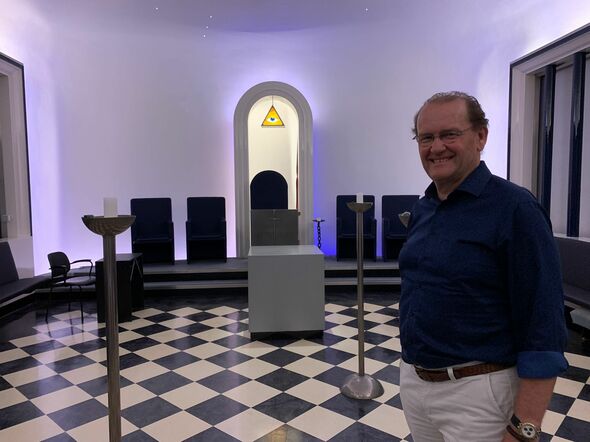
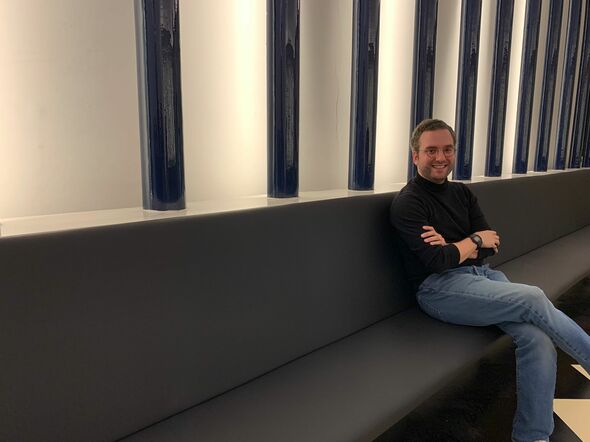
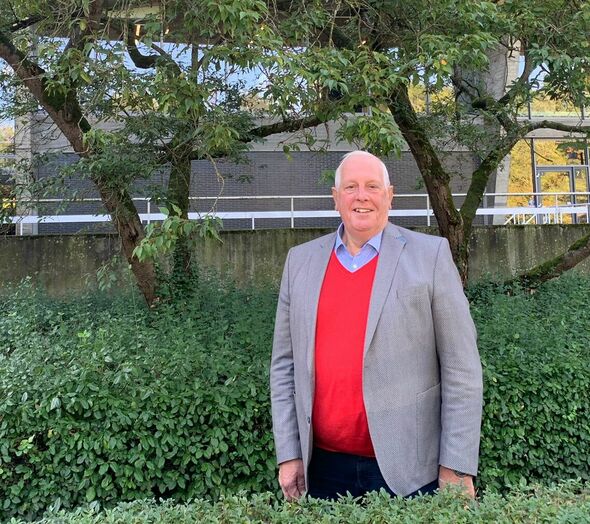
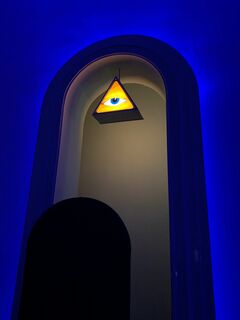
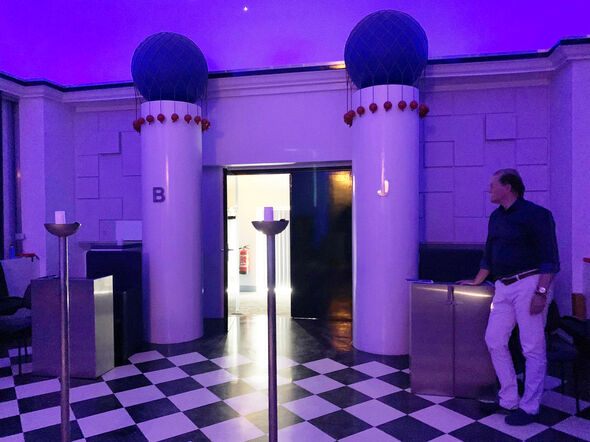
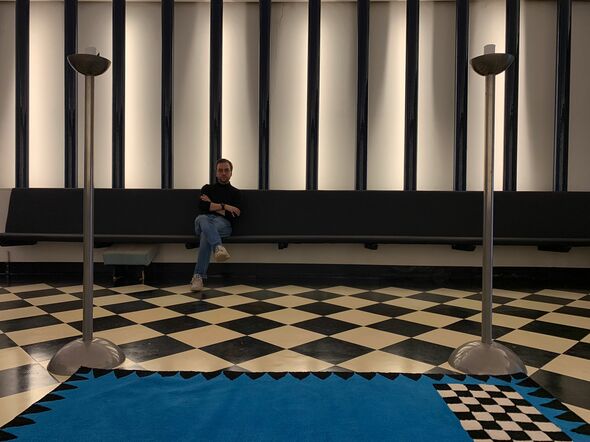
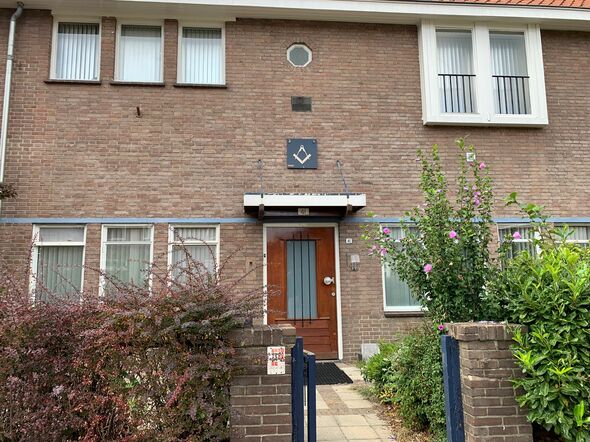
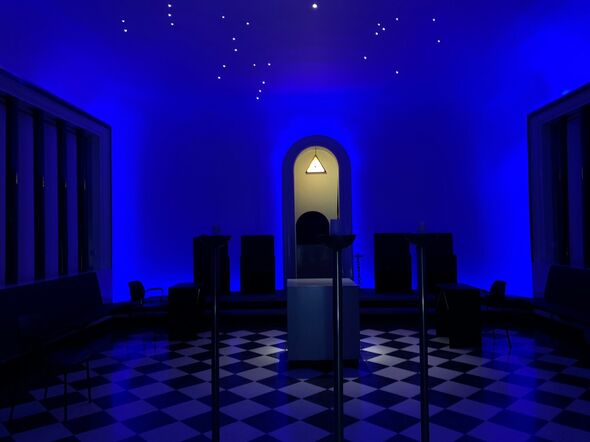
Discussion